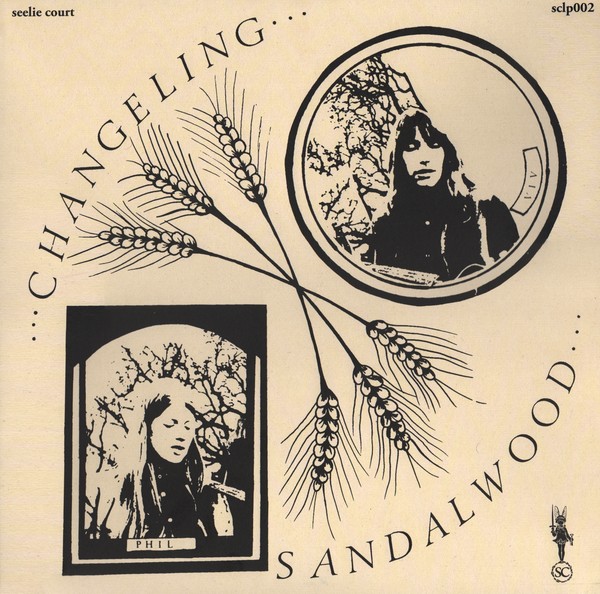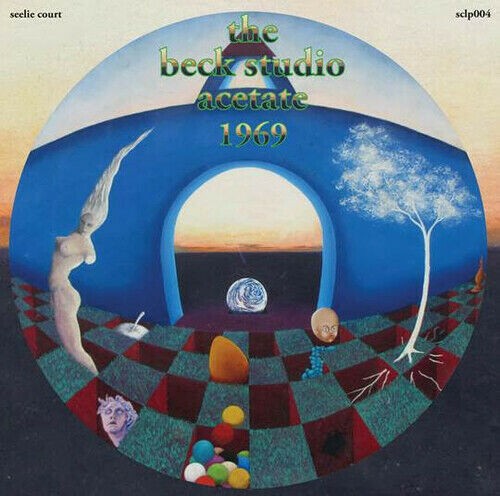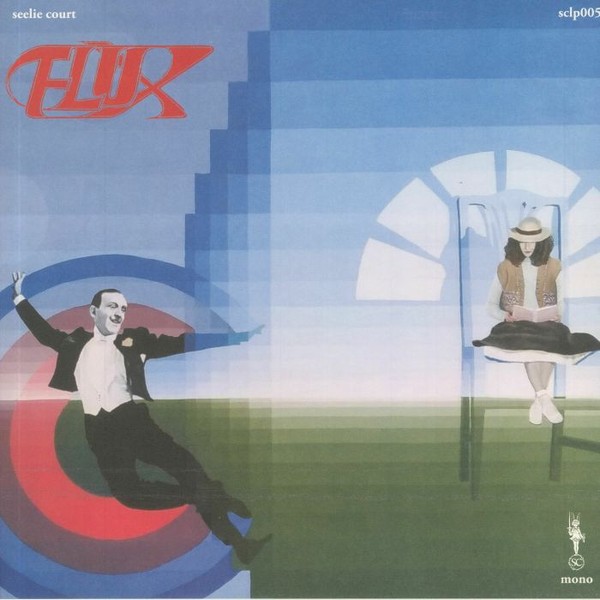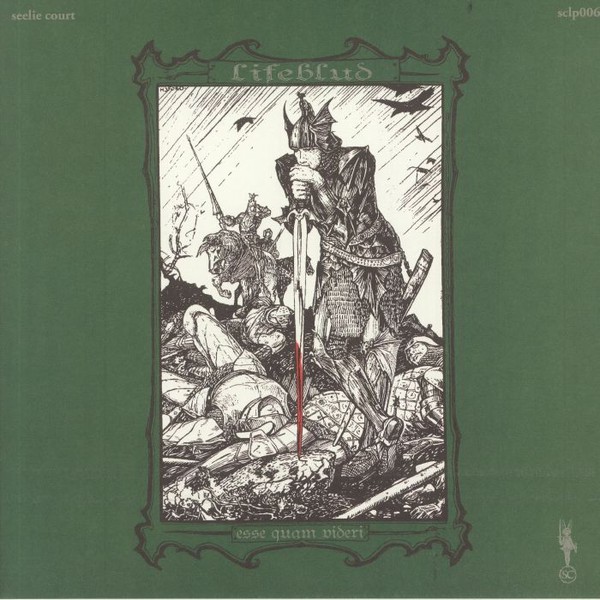In the UK, you did not have to pay sales tax if you only pressed 99 copies of an album. As a result, the private press scene could exist almost as a parallell world next to the major labels. Today, most originals are extremely expensive, but their scarcity has also generated interest in wider circles, making reissues possible if not exactly popular.
For a long time, Tenth Planet (and its corresponding CD label Wooden Hill) was my favourite acetate reissue label. But as of last year, I may just have a new favourite, Seelie Court. Only a handfull LPs have been relesed so far but as many as 50 LPs are allegedly already lined up for release. Given the quality of the first batch of releases, I certainly will buy all of them, and I think you should too. Let us take a look.
In Scottish folklore, faeries are divided into the Seelie and Unseelie spirits. The Unseelie Court contains the malicious faeries and in the Seelie Court we find the more beneficently inclined ones. But it is advisable not to relax altogether, because they can still be dangerous. And this certainly fits with the music the label is releasing. These releases are said to be sourced mainly from a private collection of super rare and often completely unknown British acetate and private pressings, and there are indeed some jaw-dropping finds here.

First out on Seelie Court, with catalogue number SCLP001 we find Across The Water, recorded in 1975 by two university friends who made one side each and then pressed only two acetate copies. For me the winner here is the first side, taken up by a wistful and surprisingly complex suite that combines classical and progressive elements. Written by Peter McKerrow and inspired by his experiences counting sheep on the island of St. Kilda as a 16 year old, it is quite mesmerising. The B-side, made by his Canadian friend longing for home is also nice, but in the singer-songwriter vein and less unique.

SCLP002 was originally issued in only 50 copies on the S.R.T. (Sound Recording Technology) label that was originally started as Sky Records with involvement from Jethro Tull members. Sandalwood was a girl duo who made their Sandalwood album in 1971 and then promptly disappeared like faerie spirits in the night. If you like soft and beautifully sung acoustic folk, this is worth checking out!

However, it is really with the astounding third release that the Seelie Court label really starts living up to its name. Mysterious and draped in pagan mood, Anaconda’s 1969 ‘Sympathy For The Madman’ was where Michalakis Stelios Sergides went after he left Arcadium due to musical differences with Robert Ellwood that surfaced during their recording of their great ‘Breathe Awhile’ LP. Anaconda’s music is maybe less epic but much darker. With beautiful flutes, violins and vocals it is being likened to a more sane Comus, a description as good as any. Only one acetate is known to exist, so this thoroughly mouth-watering reissue is a must have item.

Next up is a much heavier affair, recorded by unknown artists in the Beck Studios in Northampton around 1969. Although there is more than a touch of blues to this, I must confess to being blown away by some of the musical interplay and the imaginative guitar playing (particularly on third and longest track ‘Waking’). But the real killer here is definitely the final track ‘See me’ with female lead vocals and blissed out yet heavy comp.

If I were to pick up only one of these LPs, it would have to be SCLP005, the self-titled Flux album. Recorded live on a BBC Mobile Unit in 1973, this music is nevertheless a true revelation, in fact almost defining a genre all of its own. It starts with a totally over-the-top frenetic jazzy instrumental, dominated by band-leader John Grimaldi’s quicksilver guitar assault. But as if this incendiary mixture of jazz and prog was not enough, the almost Greg Lake-like vocals on second track ‘Atonal’ turns this into an instant classic. *Flux’ is the best prog LP I have heard in many years. Don’t bore yourself with yet another King Crimson reissue, get this instead!

After former Tenth Planet label boss David Wells released Lifeblud tracks in compilations on his current Grapefruit Records imprint, I was extremely curious to hear their 1970 acetate LP ‘Esse Quam Videri’, made in only 3 copies. While less progressive pop oriented than expected and more in the prog folk vein, it nevertheless doesn’t disappoint. Melancholic, highly poetic and very tuneful, it sounds less naive than many of its peers, while retaining an air of natural mysticism. As far as I understand, Lifeblud recorded more acetates with a heavier sounds, and I really hope they will be released on Seelie Court as well.

Whereas catalogue number SCLP007 is reserved for the self-titled prog rock masterpiece Grannie, that has been delayed for unknown reasons. Instead, SCLP008 is currently the latest release currently available for purchase, and John Strang’s “The Masterpeace” turns out to be another amazing jaw-dropper. A concept album recorded in 1968 by the then 17-year-old Strang about nuclear armageddon and total annihilation, its pitch-black lyrics and experimental interludes take the psychedelic folk genre into new territories. Strang was later knighted for his work in psychiatry but made an aborted LP for Transatlantic in the early 70s, which allegedly will also be released on Seelie Court at some point in the future!
Another twelve albums are currently slated for release on the Seelie Court label this spring. Some of them have been delayed twice already, so if and when they will actually be available is anyone’s guess. We can only hope that the faerie tale will continue!
(This text is also pulished in Japanese at http://daysoff-column.blog.jp/archives/9253916.html)
